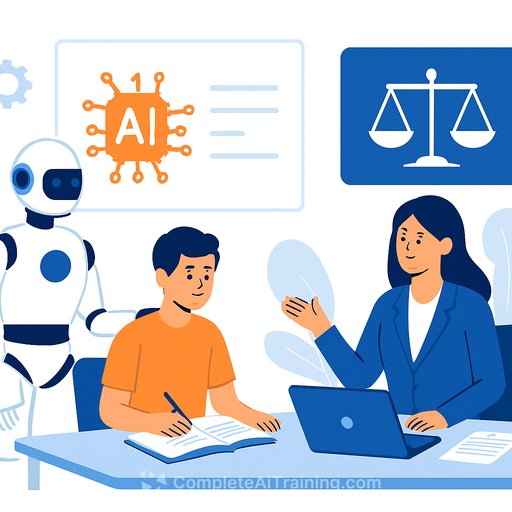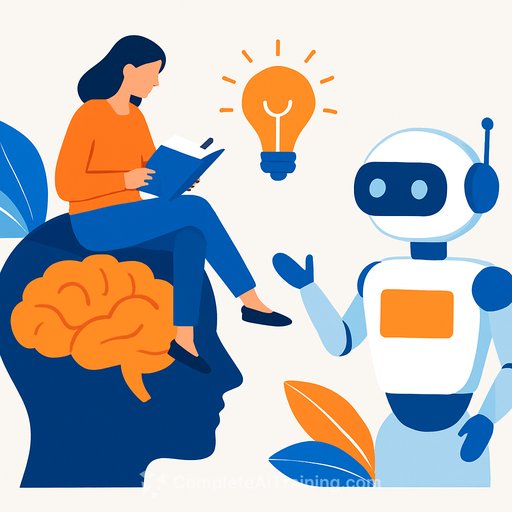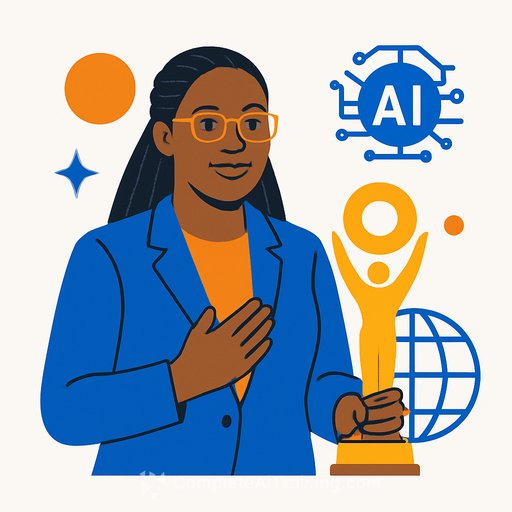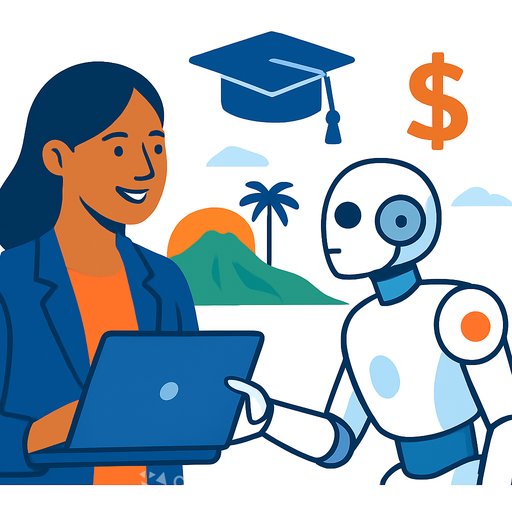Future-ready UAE: How AI is transforming classrooms, boardrooms, and beyond
AI is no longer a side project. In the UAE, it sits inside lesson plans, workflows, and decision-making. A new DMU Dubai survey shows strong adoption and an equally strong call for ethics education. That mix should guide how schools, universities, and training providers build the next wave of programs.
What the data says
- Over 60% of residents frequently use tools like ChatGPT, Gemini, or Copilot for learning, problem-solving, or work.
- 72% say the country needs more education and awareness on ethical AI use.
- Confidence gap: only 44% of 18-24-year-olds feel ready to enter the workforce vs. 59% overall.
- 67% agree AI tools make life easier, yet 47% worry over-reliance could weaken learning and critical thinking.
The signal is clear: adoption is high, but people want guidance. That puts educators at the center of this shift.
Inside DMU Dubai's approach
DMU Dubai integrates generative AI into teaching while putting ethics and societal impact front and center. The goal isn't just tool use. It's confident, values-led application.
The university's new 85,000 sq ft campus in Dubai Internet City places students next to firms like Google, HP, LinkedIn, Microsoft, and Meta. Around 3,000 students benefit from industry proximity and hands-on practice.
Simon Bradbury, pro vice-chancellor International at DMU, frames the core question: In a world where AI can answer nearly anything, what makes a graduate valuable? Depth. Creativity. Critical thinking. Collaboration across cultures. Their block teaching model supports that aim.
Block teaching: depth over breadth
Students focus on one subject at a time, with assessments at the end of each block. No juggling five modules and skimming the surface. According to the survey, 52% see block teaching as more effective than traditional methods.
This structure gives room for project work, ethical debates, and practical skill building. It also reduces cognitive overload, which helps students form stronger mental models for using AI well.
From curiosity to ethical reflection
Residents are moving from "this tool is cool" to "what should we use it for?" That shift matters. It asks educators to teach tool fluency and ethical judgment side by side.
DMU Dubai's leadership echoes this. Professor Shushma Patel highlights the need for responsible skill building, while Bradbury points to deeper capability as the edge employers want.
Policy and trust in the UAE
- 89% of UAE respondents say they've experienced AI's benefits (above the 83% global average).
- 97% use AI for work, study, or personal tasks.
- 66% report their organisation has a policy on generative AI.
- 68% are satisfied with current AI regulations, vs. 43% globally.
Public support for AI here is high-and so is the appetite for guardrails and literacy. For broader context, see KPMG's Trust in AI insights research and the UAE's AI Strategy overview from the government portal.
What education leaders can implement now
- Create an AI use policy for students and staff that covers disclosure, acceptable use, and data privacy.
- Embed short ethics modules in every AI-enabled course: bias, transparency, reliability, accessibility, and environmental impact.
- Introduce a "human-in-the-loop" standard for assessments and projects that involve AI.
- Adopt a block or mini-block format for AI-heavy modules to reduce context switching.
- Build capstone projects with industry partners so students apply AI on real problems with clear constraints.
- Stand up a lightweight model risk checklist: data sources, bias checks, explainability notes, and a fallback plan if the tool fails.
- Offer faculty clinics on prompt-writing, result verification, and assessment redesign to reduce shortcutting.
Core graduate abilities for an AI-defined market
- Technical fluency: prompt craft, data hygiene, tool selection, verification.
- Human strengths: creativity, empathy, ethical reasoning, communication.
- Work readiness: project delivery, accountability, cross-functional teamwork.
As Professor Patel notes, pairing human strengths with responsible tech use sets graduates apart. Employers want discernment, not just tool use.
Risk and opportunity: a balanced posture
Key concerns include transparency, fairness, sustainability, and reliability. KPMG leaders stress active human oversight and deliberate capability building through culture and practice. The takeaway for schools and employers is simple: set clear controls and keep people in the loop.
Industry collaboration that actually moves the needle
Courses co-designed with employers, internships tied to AI projects, and regular portfolio reviews help students build confidence and relevance. DMU Dubai's model shows how to couple classroom learning with live use cases, so skills transfer on day one.
90-day action plan for academic teams
- Weeks 1-2: Draft a campus AI policy and student AI agreement. Train faculty on disclosure norms and verification steps.
- Weeks 3-4: Audit two programs. Add short ethics units, real datasets, and "explain your process" rubrics.
- Weeks 5-6: Pilot a block or mini-block AI module with one industry partner. Ship one live project per cohort.
- Weeks 7-8: Launch a faculty clinic on assessment redesign to reduce AI-only shortcuts and reward critical thinking.
- Weeks 9-10: Stand up a model risk checklist and a simple approval flow for new tools.
- Weeks 11-12: Collect student and employer feedback. Publish changes. Plan the next cycle.
Where to upskill fast
If your team needs structured learning paths, explore AI courses by role here. Curated options help educators pick practical programs without the noise.
The bottom line
UAE residents are using AI at scale and asking for ethical guidance. DMU Dubai's integration of tools, ethics, and block teaching is a workable blueprint. Pair policy with practice, add industry to the classroom, and keep a human in the loop. That's how education stays relevant-and how graduates step into the market with real confidence.
Your membership also unlocks:






